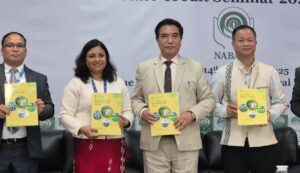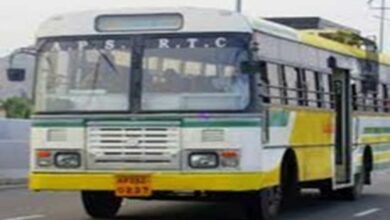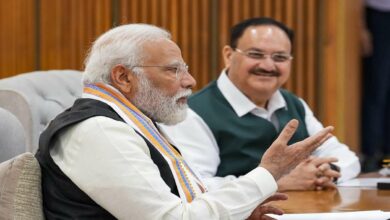Mizoram CM Lalduhoma attended the State Credit Seminar organized by NABARD as Chief Guest
Aizawl: On Friday, the State Credit Seminar was held in Aizawl by the NABARD, Mizoram Regional Office. Mizoram Chief Minister Lalduhoma was the chief guest, and the State Focus Paper 2025–2026 was issued.

Special guests at the seminar include T. Lhungdim, the General Manager (OIC) of the Reserve Bank of India; Lalnilawma, the Minister of Rural Development, Horticulture, and PHED of the Government of Mizoram; and PC Vanlalruata, the Minister of Agriculture and Cooperation of the Government of Mizoram.
The conference was attended by Lead District Managers (LDMs), SLBC coordinators, senior bankers from the banking fraternity, senior officials, and developmental agencies, including non-governmental organizations.
The chief guest, special guests, and all attendees were welcomed by Pankaja Borah, General Manager (OIC), NABARD, Mizoram Regional Office. She also gave them a briefing on the importance of the State Focus Paper in the state’s development planning and emphasized the role that credit and credit enablers play in transforming the rural economy.
She presented NABARD’s vision for Mizoram, pledging to advance rural development and sustainable agriculture, increase financial inclusion, speed up rural infrastructure via creative and significant initiatives, and support Agri-MSE in the state.
She urged the banks and line departments to cooperate in order to provide lending assistance to the different sectors in order to boost the rural economy, create jobs, and raise farmers’ incomes.
RBI’s General Manager (OIC), T. Lhungdim, outlined the RBI’s efforts to promote financial inclusion and priority sectors, including the establishment of the Center for Financial Literacy (CFL), careful monitoring of credit flow to the MSME sector, and the development of lenders’ and borrowers’ capacity through NAMCABS and Town Hall Meetings.
According to him, the RBI increased the maximum amount for agricultural loans without collateral, including those related to related operations, from Rs 1.6 lakh to Rs 2 lakh per borrower. Farmers now have greater access to financing without the requirement for collateral thanks to this increase, which takes inflation and growing input prices into consideration. It is anticipated that the increased loan ceiling would lower borrowing costs, especially for small and marginal farmers. Additionally, it is anticipated to increase the use of Kisan Credit Cards (KCC), allowing for more agricultural investment.
The credit planning process and the responsibilities of stakeholders are outlined in detail in the Reserve Bank of India’s implementation instructions for the Lead Bank Scheme. The guidelines also stress the need for keeping an eye on credit programs via a variety of forums, including the State Level Bankers Committee at the state level, the Block Level Bankers Committee at the block level, and the District Consultative Committee at the district level.
The need to develop the food processing sector through developmental interventions such as value chain development, agro-based processing in a cluster approach, and skill development of rural youth was emphasized by Lalnilawma, Minister of Rural Development, Horticulture, and PHED, Government of Mizoram. Since the state lacks cold storage facilities and agricultural marketing infrastructure like godowns and warehouses, food processing and value addition are essential. In order to encourage the development of the bamboo chain, including farmers’ cultivation of it, efforts may be made to enable institutional lending from banks.
The Government of Mizoram’s Agriculture and Cooperation Minister, PC Vanlalruata, acknowledged the important role that NABARD and the banking industry have played in the state’s agricultural development and financial inclusion. He praised NABARD’s contribution to the growth and fortification of grassroots organizations, including FPOs, MPACS, PACS, and others. Additionally, he made sure that NABARD-approved rural infrastructure projects were implemented quickly.
Chief Guest Lalduhoma, the chief minister of Mizoram, presented the State Focus Paper 2025–2026 and commended NABARD for hosting the seminar.
In order to further agricultural and sustainable rural development in the State of Mizoram, he believed that the State Focus Paper, which was issued today, would provide fresh concepts, recommendations, and necessary action points. Over the years, he said, NABARD’s interventions—whether through micro-enterprise promotion, financial inclusion for the underprivileged, or the implementation of various developmental programs—have transformed rural communities.
Additionally, NABARD has been a vital partner in assisting farmers in embracing new agricultural technology, guaranteeing improved market accessibility, and raising rural communities’ standard of living in general.
Amit Sharma discussed his thoughts on the growth of Mizoram’s cooperative sectors at the seminar. According to him, Kerala has the largest proportion of people who are cooperative (77%), followed by Karnataka (50%), while Mizoram has the lowest rate (just 4%). Twenty-five PACS from Mizoram have been chosen for the first phase of computerization under the PACS computerization initiative. All 25 of these PACS have now reached the Go-Live stage. All of the chosen PACS received the required hardware as part of the program.
Following a thorough presentation on the sub-sectors of agriculture, the seminar’s attendees engaged in an open house Discussion. With an overall estimate of Rs. 2984.59 crore, the State Focus Paper 2025–2026 predicts potentials under many sectors: Micro, Small, and Medium Enterprises (Rs. 1471.23 crore), Agriculture and related sectors (Rs. 964.45 crore), and Other Priority sectors (Rs. 548.90 crore).
It is anticipated that the state’s banking industry would use the potential as a guide when developing its annual credit plan for 2025–2026.





